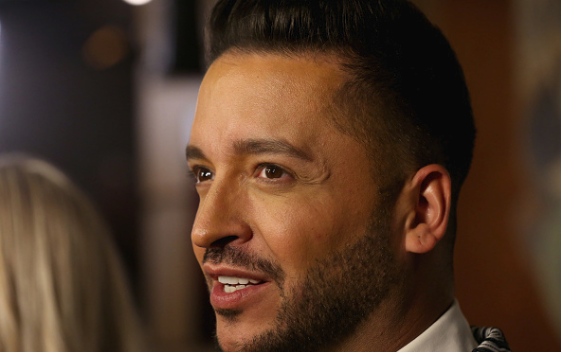The numbers of people contracting HIV/AIDS are declining, but unfortunately, this isn’t the case in Black and Latino communities where the numbers are rising at an alarming rate. Positively Fearless is a campaign that raises awareness about Black and Latinx gay and bisexual men with HIV. It celebrates the bravery and courage of those who get tested, accept the diagnosis and seek the care and treatment that is right for them.
One man living with the disease is Adrian Altamarino. He lost his mother in 2014 and was left with the responsibility caring for his brother. In 2016, he was diagnosed with HIV and he experienced some challenges with the disease that many others like him go through every day. “The obstacles that I first had was having to take care of my family…also my primary language is Spanish, so I needed to get information in my language, [not to mention] the stigma and what people might think of me,” says Altamarino, HIV+ patient, and spokesperson for Positively Fearless.
Another challenge Altamarino faced was finding the resources to make appointments, and get treatment. “In the beginning, I didn’t know what to do, where to get the resources to get my treatment and stay on treatment,” he says. Going through these challenges inspired him to reach out and help those who are struggling by giving them the tools they need for HIV health and provide support to his peers though Positively Fearless. “Once you’re diagnosed, it’s not the end of the world, it’s a new beginning,” says Altamarino. Positively Fearless aims to educate and help empower Black and Latinx to get tested, to help others that are going through the same journey and to seek treatment and stick to it.
As someone who is also a part of the Latinx LGBTQ community, Jai Rodriguez, actor and spokesperson for Positively Fearless explains that he was inspired to help raise awareness for HIV/AIDS because of his aunt Joann. “I was 16 and at Thanksgiving dinner, she came out and told us she had AIDS, not HIV, but AIDS,” says Rodriguez. When he heard this was happening to her, he couldn’t believe that someone he knew was part of a statistic. “It was quite crazy for our family to handle,” he says, “I have family that to this day, that if I’m doing a fundraiser for HIV or an AIDS-related thing, they will not post to their social media. They are so ashamed of the words HIV or AIDS that they can’t bring themselves to post on their page for fear of what their friends or colleagues might think of them.”
One out of every four gay and bisexual Latinx men will develop HIV in their lifetime if the current rates continue. Rodriguez expresses the importance of being an ally to the community to support other MSM (Men having Sex with Men) that are HIV+. “Stand up for the community even when they are not around by not allowing an AIDS joke to fly by, and really standing up to people because I consider that bullying. I’ve always taken that personally because to me it’s not someone else, it’s my aunt,” says Rodriguez.“Once we start stripping away the power people have given HIV/AIDS as a shaming tool, we’re going to step closer towards actually being able to eradicate this disease within our lifetime.” He expresses that the best thing we can do for those who have the disease is to be present, and just listen. It’s simple things like taking them to the doctor’s office that can make a huge difference in their lives.
“The number of patients with infections is declining, yet Latinx are increasing by 20%,” says Dr. Edwin DeJesus, Medical Director of the Orlando Immunology Center (OIC) in Orlando, Florida. Black and Latinx men are also twice as likely to miss their doses than other groups. Dr. DeJesus explains that this is due to mostly socioeconomic factors.
Many black and Latinx families tend to hold a stigma against those with HIV/AIDS, so those who are diagnosed don’t feel comfortable taking the medications in front of their families. In addition to this, many Black and Latinx men that are HIV positive have schedules which do not allow them to take medication on time, whether it be due to work, taking care of family members or out of fear of someone possibly seeing.
Dr. DeJesus explains that HIV patients must be honest with their doctors with how they take their medicine so that they can help patients modify a regimen that is more suitable for them. He expresses the importance of those who are diagnosed with HIV to take their medicine regularly or they will develop a resistance to the medicine and it will no longer be effective.
If you or a loved one is concerned for their health visit cdc.gov for information about the disease. To learn more about the movement, visit PositivelyFearless.com.
